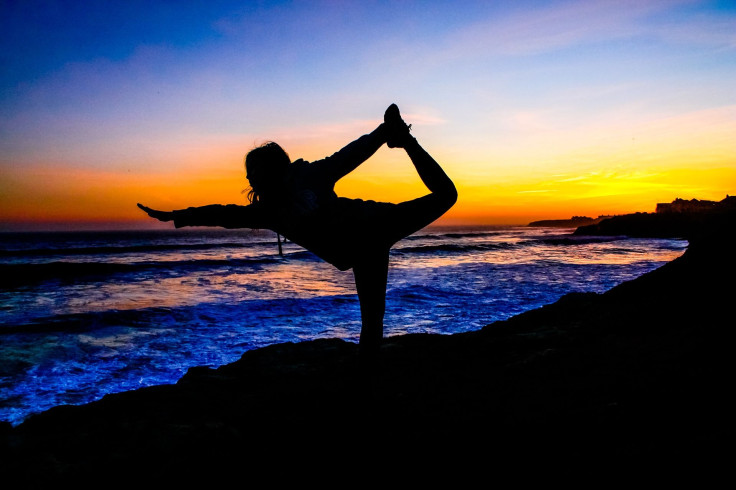Can Exercise Help Acne? How Relieving Stress Can Improve Your Skin


This question originally appeared on Quora. Answer by Tatiana Aynbinder.
Exercise significantly improves your skin's complexion specifically in controlling acne. There are a variety of reasons that can contribute to breakouts. A leading factor is due to hormonal fluctuations within your body. Although, hormonal changes can be triggered for numerous reasons "stress" can play a huge component. When you stress you release cortisol hormones, this surge in testosterone causes your oil glands to produce excess oil, elevating your risk for bacterial infection leading to clogged pores and pimples. However, the benefits of exercise greatly help to combat stress-induced hormonal breakouts. It's important first to understand how hormones, stress, and exercise contribute to acne.
1. Hormones:
Hormonal fluctuation is one of the biggest factors wreaking havoc to your skin complexion. Hormones like estrogen, progesterones, and testosterone are the culprits. These hormones are affected by starting and stopping birth control, and by pregnancy. Typically, during your teenage years, a lot of hormonal fluctuation occurs as girls go through puberty and start getting their periods. However, especially in women, hormonal changes don't just stop after adolescence. Menstrual cycles, birth control, pregnancy and even menopause may all cause hormones to fluctuate. It’s not uncommon for women to suddenly get acne even after their childbearing years.
How do hormones lead to sudden acne breakouts? Androgens (a group of male sex hormones like testosterone) can cause excess sebum production in your skin. If your hormones are imbalanced with the female hormones such as estrogen and progesterone, this will lead to your body overproducing oil in your skin cells.
For some people, birth control can increase the female hormones like estrogen and a form of synthetic progesterone to balance out the production of male hormones like androgen. Breakouts become reduced by calming down the excess oil production that would have surged without the female hormones controlling it.
Although birth control helps mild breakouts for many, for others it can do the opposite, causing sudden breakouts after you start taking it. Since everyone's skin type and body chemistry is different, there is no “one size fits all” approach to controlling acne. Usually, if you were acne-prone before, taking birth control (“the pill”) can help, but if you were someone who didn't break out before starting birth control, hormonal changes could cause some new skin issues.
For those women that get acne breakouts from using their birth control, here is a useful tip: a week before your period, start preparing your skin by using more products that include acne fighting and preventive ingredients like salicylic acid, glycolic acid or benzoyl peroxide in washes, facial pads or topical creams. If you already use them, maybe using higher concentrations in that week will help. These washes can also exfoliate your skin so that oil, dirt, and debris don't get stuck in clogged pores with an increase in excess production of oil. By going on the offense a week before your time of the month, you can lessen your chances of getting acne breakouts.
Masking and drying up your skin a week before your period can be very helpful. Try anti-acne salicylic acid, benzoyl peroxide, glycolic acid, retinoids exfoliation, exfoliating toner and cleansing clay mask.
2. Stress is a significant factor contributing to sudden breakouts.
As we discussed earlier, hormonal fluctuations are one of the main culprits leading to breakouts. When we are stressed, we release cortisol hormones. A surge in testosterone causes your oil glands to produce more, elevating your risk for bacterial infection to occur in your skin pores, causing pimples to form. Of course, when you start breaking out, the emotional toll it can take on your self-confidence can lead to more stress, which then continues the process of breakouts from the surge in cortisol that your body continues to produce (a “feedback loop”).
Lower the stress level of your life as much as possible. Exercise, yoga, meditation and breathing awareness are all great tools to reduce stress. Strenuous exercise is especially effective at breaking down cortisol in the bloodstream. Even moderate exercise releases endorphins and serotonin which lessens your levels of stress hormones. Additionally, you can sweat out impurities and excess oil - just make sure to cleanse and wash your skin properly post workout.
It's important to take steps to control your stress. Meditating and calming your breath down are proven ways of relaxing your mind and body, keeping you from going into stress mode. Try taking the right measures to calm yourself down, especially in moments when you are overly stressed. If you know you will be in a position to be stressed, this is the best time to work out and take care of yourself, take baths, massages, listen to calming music - whatever works best for you. With time and practice, we can get control of reactivity and triggers, helping to avoid moments of emotional overload. These are good techniques and habits to have and practice for life in general.
I hope this helps!
More from Quora:
Published by Medicaldaily.com



























